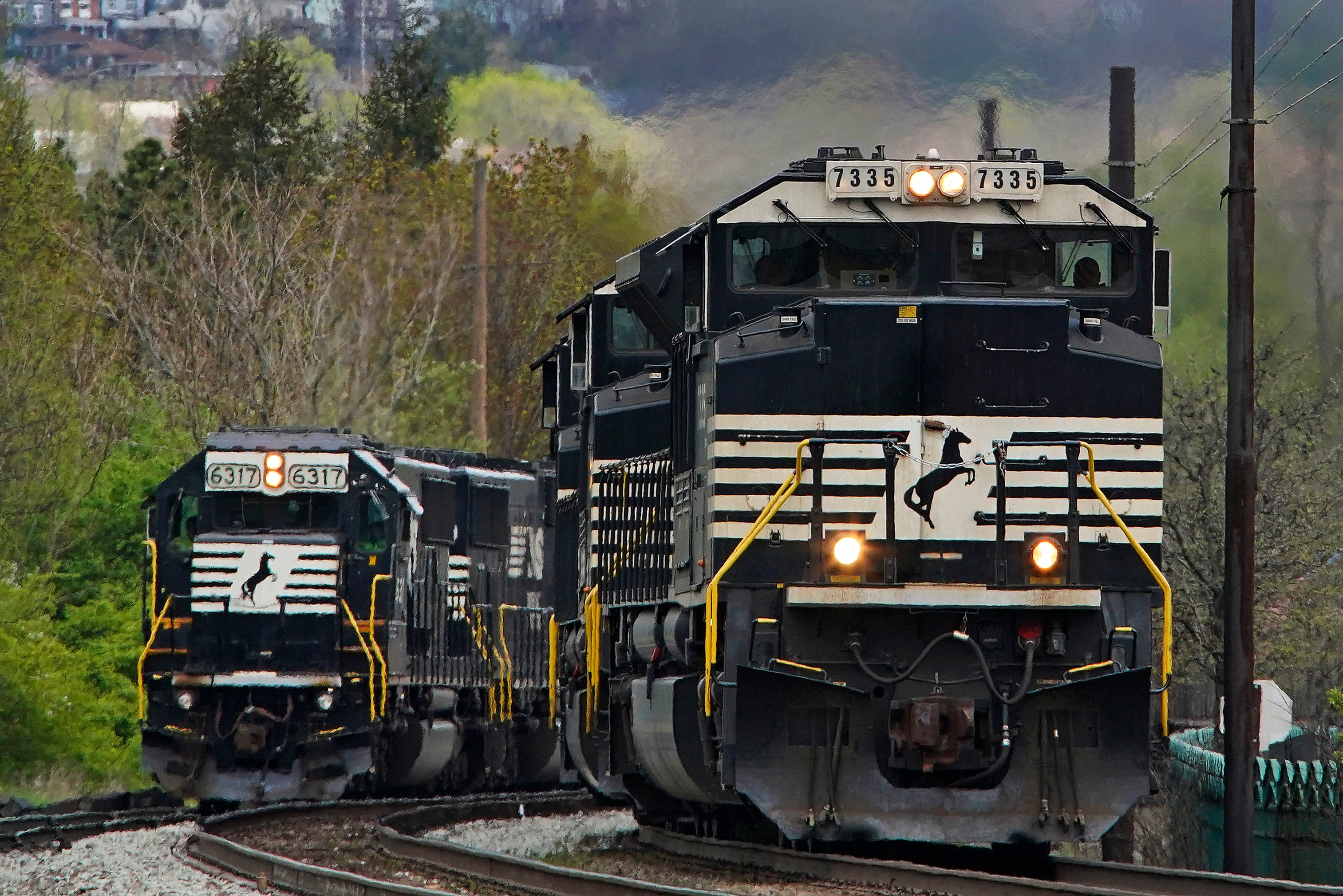Pressure mounts on US railroads and unions to reach a deal
Freight railroads and their unions are facing increasing pressure from business groups and the White House to settle their contract dispute

Your support helps us to tell the story
From reproductive rights to climate change to Big Tech, The Independent is on the ground when the story is developing. Whether it's investigating the financials of Elon Musk's pro-Trump PAC or producing our latest documentary, 'The A Word', which shines a light on the American women fighting for reproductive rights, we know how important it is to parse out the facts from the messaging.
At such a critical moment in US history, we need reporters on the ground. Your donation allows us to keep sending journalists to speak to both sides of the story.
The Independent is trusted by Americans across the entire political spectrum. And unlike many other quality news outlets, we choose not to lock Americans out of our reporting and analysis with paywalls. We believe quality journalism should be available to everyone, paid for by those who can afford it.
Your support makes all the difference.Freight railroads and their unions are facing increasing pressure from business groups and the White House to settle their contract dispute before Friday's looming strike deadline.
The pressure stems from concerns that halting railroad deliveries of raw materials and finished products that so many companies rely on would be, in the words of the head of the U.S. Chamber of Commerce, an “economic disaster.”
The White House confirmed President Joe Biden is following the talks closely, and, for the second time in the past week, Labor Secretary Marty Walsh sat down at the negotiating table Sunday to urge the parties to reach a deal. Walsh postponed a planned to trip to Ireland this week to remain close to the talks.
A Labor Department spokesperson said Monday that it’s crucial that the parties remain at the negotiating table and come to an agreement because “a shutdown of our freight rail system is an unacceptable outcome for our economy and the American people.”
Suzanne Clark, the head of the U.S. Chamber of Commerce, said Monday that “a national rail strike would be an economic disaster — freezing the flow of goods, emptying shelves, shuttering workplaces and raising prices for families and businesses alike.”
The chamber joined a number of other business groups, including a coalition of 31 agricultural shipping trade groups, in sending a letter to Congress urging lawmakers to be prepared to step in and block a strike if the two sides can't reach an agreement by the end of the week. The chamber said if it comes to that, Congress should impose the terms recommended by a Presidential Emergency Board that Biden appointed this summer.
The Association of American Railroads trade group put out a report last week estimating that shutting down the railroads would cost the economy $2 billion a day.
The coalition negotiating on behalf of the nation's biggest freight railroads — including Union Pacific, CSX, Norfolk Southern, BNSF and Kansas City Southern — has announced eight of the 13 tentative agreements needed to avert a strike by some 115,000 rail workers.
The deals that have been announced so far have closely followed the Presidential Emergency Board’s recommendations that called for 24% raises over five years, $5,000 in bonuses and one additional paid leave day a year. But the two biggest unions representing conductors and engineers have been holding out because they want the railroads to go beyond those recommendations and address some of their concerns about strict attendance policies and working conditions.
The railroads have said they would begin curtailing shipments of hazardous materials and some other goods Monday in advance of a possible work stoppage at the end of the week. That would ensure that containers of those dangerous goods aren't left stranded along the tracks.
The heads of the Sheet Metal, Air, Rail and Transportation Workers — Transportation Division union that represents conductors, and the Brotherhood of Locomotive Engineers and Trainmen union that represents engineers, criticized that decision as a move to increase pressure on shippers and Congress to intervene.
The federal law governing railroad contract talks won't allow a strike or lockout before Friday.
___
Associated Press reporter Josh Boak contributed to this report from Washington, D.C.